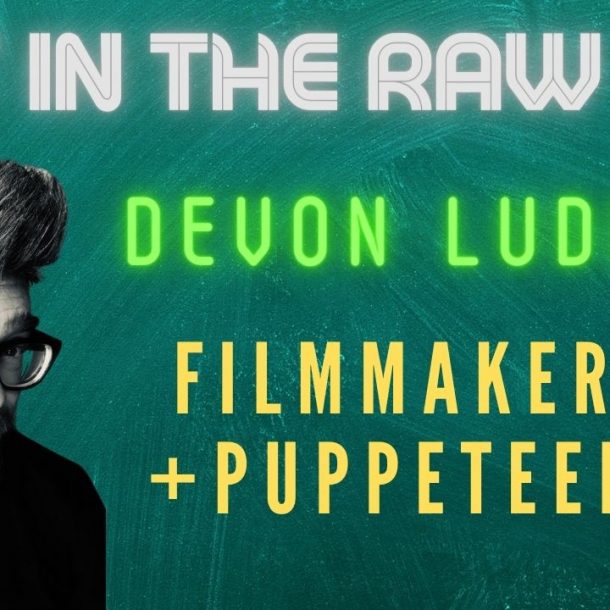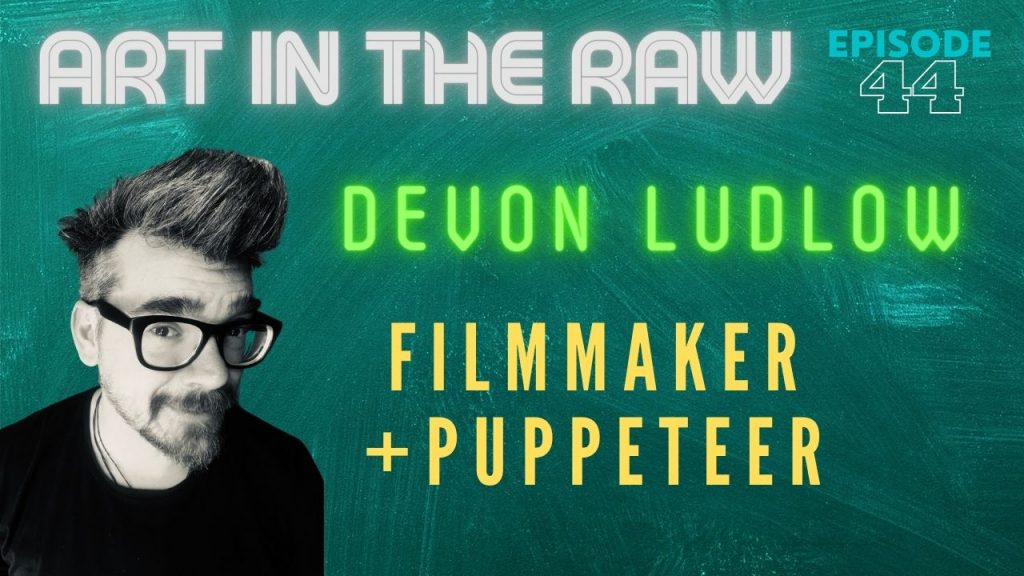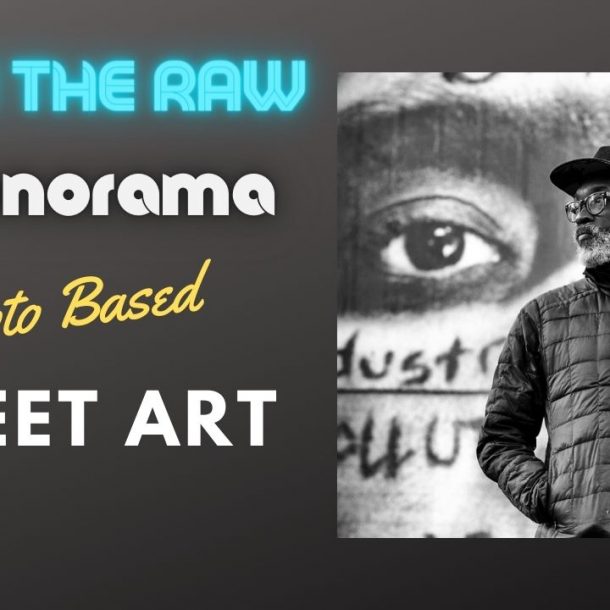
- Home
- Episode
- Get Matched
- New Mexico Artists
- Art + Music
- Art + New Tech
- Analog Photography
- Being a Full-time Artist, Stone Sculptor
- Creativity & Computing
- Creator, Curator + Art Dealer
- Creativity, Curiosity and Chemistry
- Designing Sets for the Film Industry
- Finding Joy
- Goldleaf Framemakers Studio Tour
- Handcrafted Jewelry + Furniture
- Hot Air Balloon Adventures
- Illustration Watercolor Painting
- Making a Living as a Sculptor
- Music and Art Law
- Modern Folk Art
- Oil Painting & Inspiration and Other adventures
- Painting, Behind the Scenes Studio Tour
- Talking Music
- Speed Portraiture | Essential Workers Project
- The Free Range Buddhas
- Photography
- Analog Photography
- Banter + INTRO!
- Cyanotype Photography and Bird Houses
- Photography, Hip Hop + Culture
- Polaroid Photos + Publishing
- Speed Portraiture | Essential Workers Project
- Telling a Story with Filmmaker + Photographer
- Film Photography Vs. Digital + Shooting from the Hip
- Exploring Culture Through the Lens
- Painting + Drawing
- Music
- Art + Science
- Sculpture
- Tattoos
- Theater
- Shorts
- One Celebration | Knowledge Drop!
- Studio Tours
- In the Wild
- SOCIAL HOUR – Art, Music, Copyright & other stories …
- Artists
- New Mexico Artists
- Jessie Baca
- Cody Brothers
- Marie Blessing
- Michael Burt Jr
- Dorielle Caimi
- Eric Cousineau
- Tim Church
- Josh Gallegos
- Stephen Guerin
- Danny Hart
- David Horowitz
- Laird Hovland
- Francesca Jozette
- Talia Kosh
- Roland Van Loon
- Diego Mesones
- Taura C.C Rivera
- Greg Robertson
- Michael Rohner
- David Scheinbaum
- Zac Scheinbaum
- Ray A. Valdez
- Croix Williamson
- Alberto Zalma
- Photography
- Music
- Painting + Drawing
- Art + Science
- Sculpture
- Tattoos
- Theater
- New Mexico Artists
- Videos
- Transcriptions
- Photos
- About
- Opportunities
- Members
- Contact
- Home
- Episode
- Get Matched
- New Mexico Artists
- Art + Music
- Art + New Tech
- Analog Photography
- Being a Full-time Artist, Stone Sculptor
- Creativity & Computing
- Creator, Curator + Art Dealer
- Creativity, Curiosity and Chemistry
- Designing Sets for the Film Industry
- Finding Joy
- Goldleaf Framemakers Studio Tour
- Handcrafted Jewelry + Furniture
- Hot Air Balloon Adventures
- Illustration Watercolor Painting
- Making a Living as a Sculptor
- Music and Art Law
- Modern Folk Art
- Oil Painting & Inspiration and Other adventures
- Painting, Behind the Scenes Studio Tour
- Talking Music
- Speed Portraiture | Essential Workers Project
- The Free Range Buddhas
- Photography
- Analog Photography
- Banter + INTRO!
- Cyanotype Photography and Bird Houses
- Photography, Hip Hop + Culture
- Polaroid Photos + Publishing
- Speed Portraiture | Essential Workers Project
- Telling a Story with Filmmaker + Photographer
- Film Photography Vs. Digital + Shooting from the Hip
- Exploring Culture Through the Lens
- Painting + Drawing
- Music
- Art + Science
- Sculpture
- Tattoos
- Theater
- Shorts
- One Celebration | Knowledge Drop!
- Studio Tours
- In the Wild
- SOCIAL HOUR – Art, Music, Copyright & other stories …
- Artists
- New Mexico Artists
- Jessie Baca
- Cody Brothers
- Marie Blessing
- Michael Burt Jr
- Dorielle Caimi
- Eric Cousineau
- Tim Church
- Josh Gallegos
- Stephen Guerin
- Danny Hart
- David Horowitz
- Laird Hovland
- Francesca Jozette
- Talia Kosh
- Roland Van Loon
- Diego Mesones
- Taura C.C Rivera
- Greg Robertson
- Michael Rohner
- David Scheinbaum
- Zac Scheinbaum
- Ray A. Valdez
- Croix Williamson
- Alberto Zalma
- Photography
- Music
- Painting + Drawing
- Art + Science
- Sculpture
- Tattoos
- Theater
- New Mexico Artists
- Videos
- Transcriptions
- Photos
- About
- Opportunities
- Members
- Contact
Transcription: Making a Punk Puppet Musical with Devon Hawkes Ludlow
Transcription
Anne Kelly (00:08):
Hey friends. Welcome to Art in the Raw conversations with creative people tonight, I’m excited to introduce you to Devon Ludlow. He’s a puppeteer film director, writer, composer, and the founder of human beast box, which is an independent film and theater company. If this is your first time watching, I’m your host Anne Kelly. Now you might be wondering who I am in a nutshell, I’m somebody that’s been in love with art and music, my entire life. I’ve now been working in the professional gallery world for about 15 years now. And I started Art in the Raw about halfway through 2020 to keep people connected and inspired. If you see value in that consider telling like-minded friends. In the meantime, I’m excited to introduce you to Devon. Welcome Devon.
Devon Ludlow (01:04):
My pleasure. Thanks for having me.
Anne Kelly (01:05):
And where are you this evening?
Devon Ludlow (01:07):
I’m here in Santa Fe on snowy cold night.
Anne Kelly (01:10):
You are involved in many projects from what I’ve gathered. You’re a puppeteer, a filmmaker director, writer, composer, and the founder of human beast box, which creates some great films. I watched the three part series of love that would not die last night and enjoyed that very much.
Devon Ludlow (01:33):
Excellent. I’m glad you enjoyed it.
Anne Kelly (01:35):
I think actually the first thing I watched was your, your holiday special with, with Stan. I’ve gotta say he’s, he’s kind of grown on me and curious to see what sort of adventures are next.
Devon Ludlow (01:48):
And that is funny. You should say that, uh, we were just talking about going into Stan’s ancient pasts ancestors, sort of just putting him up in like Ardian drag with a big curly wig playing the harpsichord. So that’s possible little,
Anne Kelly (02:01):
Little preview there into terms of the whole puppeteer aspect of the things that you do. What is the origin of that? That’s not everybody,
Devon Ludlow (02:10):
That’s not everybody. No, there’s a puppeteer in Albuquerque. Who worked on the dark crystal and Labrinth. His name is Michael McCormick. He described it really well. It’s not a profession or technique that you go into. It’s more like a, a dark cloud descending upon you. It comes, it comes to you. The practical thing is that I, I went to Portland, Oregon after graduating college, do physical theater and dance, which is what I had studied and was living next to an anarchist commune. I was living in a clown commune and there was a puppeteer next door to Tim Juney. And he absorbed me is the easiest way to say it through a long series of auditions and workshops. So then I was part of a touring three person puppet company, where we had found object puppetry, and we toured around Eastern Europe and little Western Europe, the U.S. , South America, all around. And after that, I was kind of sold. I discovered more and more. It’s a very radical form. The guy who founded bread and puppet had a quote that you can find out more about puppetry from police notes than you can from, uh, theater history books. Interesting. There’s always, yeah, always had this very edgy feel to it sort of intrigues upsets or whatever, uh, for people. And you can, it’s like a very vast playground to do all kinds of wild, provocative things.
Anne Kelly (03:30):
I was, I was checking out the website and you had described the, the company as a vehicle for anarchic performances. And I, I love that description and vibe. So that kind of harkens back to that.
Devon Ludlow (03:47):
Yes, absolutely. Part of puppetry almost always invites total anarchy and chaos. There’s sort of like a lot of the, a lot of the rules we have just fly out the window. So those performs really get wild in a way that nothing else really can. And even when we were shooting the films, I tried to make sure that we, we kept that sense of things. Film making can be pretty rigid at times, or hierarchical. So ensuring that there was room for insanity to occur, cause the puppets themselves always invite that.
Anne Kelly (04:21):
And speaking of dark, crystal and Labrinth , Labrinth growing up was my favorite movie. So I’m kind of curious, did you grow up watching those movies as well?
Devon Ludlow (04:30):
Do you, oh for sure. Those made a, those made an impression on many, many, many people had a lot of discussions about that actually, you know, America has almost, America’s a very weird relationship to puppets, and puppetry in general, not to digres too much, but one thing is when we traveled and toured abroad, you suddenly realized it was treated very differently. Like an art form or something, which is shocking to somebody from this country, but Henson and Oz and the nose, those guys did have an idea of how much they could do with it sort of dark areas they could explore and these sort of wild, exciting things that could happen. And even though those films all bombed commercially, when they came out, they think they had a huge indelible effect on people on the popular psyche, myself included,
Anne Kelly (05:16):
You know, the more I have these conversations, I, I believe that to be true and just kind of looking at some of those movies as early influences and the type of art and things I’m interested in these days when I really kind of break it down, I, I can see that connection, which I think is pretty interesting. So while the whole puppeteer thing, maybe to some people maybe feels like a fringe type of thing, you know, maybe, maybe it’s not just in that there’s aspects of it. That might be part of our childhood growing up, that, that stuck with us.
Devon Ludlow (05:49):
Yeah. Culturally, I agree with you. I mean, one of the problems for it in this country is it’s like inherently anti commercial in a lot of ways, you know, Muppets are an exception, but for the most part, it’s, it’s not something you can make a big buck off of. So people have a hard time knowing how to interpret it. So it’s very, it’s very fringe and wild. That means it’s also the place where people are the most for you to explore. So if you ever, ever have a chance like to go to the, you know, the Chicago Puppet Festival or see any of these shows, you’ll almost certainly see something that you never would’ve expected. You know, a lot of the shows we did also when I like lived in New York and performed with troops there, especially a group called Jolly Ship the Whizbang, The Pirate Puppet Rock Troop. Uh, we were always performing in the circuit with like drag troops and surreal comedians and burlesque performers and clients like that was the, that was the grouping we always got put in. The people on the fringes were on the, you know, the very end of the tentacle of the culture, which is definitely my favorite place to, to be
Anne Kelly (06:52):
Going back a little bit, as I understand it, you grew up in Santa Fe, left, traveled to other parts of the world for a bit. You were in New York. Dancing was kind of one of the first creative expressions that is noted and it’s kind of merged into you, a variety of different creative expressions. So do you, do you feel like that’s related in a specific way that that you’re conscious of
Devon Ludlow (07:17):
It’s, there’s always been a really important part of grounding yourself, physically, you sort of ground yourself, physically, everything else has an opportunity anyway, to line up. So even in writing, if you can get yourself to that place, it, it naturally tranquilize anxieties or worries, or self-doubts this isn’t easy. Like I have a very hard time doing this myself, but it was, it’s sort of like, um, a foundational element so that any kind of creative work can flow a lot easier from that puppetry. It’s like, that’s the best training I’ve ever encountered for puppeteers. Like actors in general takes a lot longer for them to adapt to puppetry depends on the person, of course, but sometimes they, they want to have the attention on themselves or something or their face or their voice dancers. It’s their, um, their body. They know how to like move energy or express it to, you know, the ends of their limbs.
Devon Ludlow (08:12):
And, and beyond you need to be comfortable with that to start working with some of the, the creatures or the ideas of the creature. I think I first saw that was something called Bunraku puppetry, where they do a lot of Bunraku style puppetry, very popular now as a form from Japan, with totally visible puppeteers for each a different part of the creature. So it’s like a very conscious erasure of the, of the, or puppeteer during the performance. Part of that happens when you are able to mentally make yourself flow into the object or the, the totem, the puppet. And when that happens, you, you vanish and the creature or the object comes to life in a special way. Amazing way. And dancers seem to have a, an easier time with that to start with. I mean, anybody can come along, but that’s the best training I’ve run into. In some ways like you enter a certain, certain kind of really flow state where you are, you’re just a vessel for whatever’s moving through you or happen to, which is some of the best stuff, most fun experiences.


